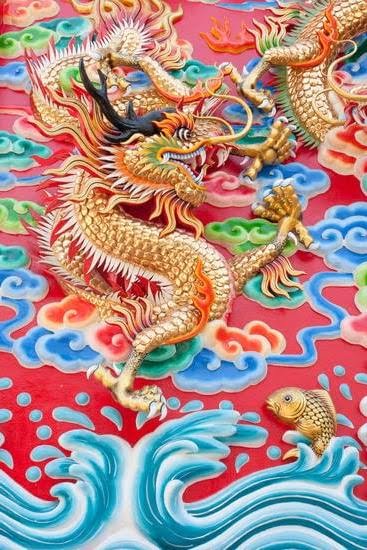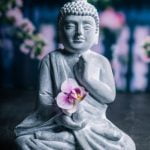Feng Shui, a practice originating from ancient China, focuses on the harmonious arrangement of spaces to promote positive energy flow and enhance well-being. One of the most important aspects of Feng Shui is its application in the home, where it can greatly influence the overall atmosphere and energy within a living space. Understanding the principles of Feng Shui and how to optimize them in your home can have a significant impact on various aspects of your life.
Dating back thousands of years, Feng Shui has deep roots in Chinese culture and philosophy. The practice combines elements of astronomy, geography, and traditional beliefs to create a system that seeks to balance energies in any given space. By acknowledging the history and origins of Feng Shui, homeowners can appreciate its complexity and learn how it can positively influence their daily lives.
Central to understanding Feng Shui in a home is the use of the Bagua map, which divides a space into nine areas representing different aspects of life such as wealth, relationships, and health. Each area corresponds to specific elements, colors, and shapes that can be enhanced or adjusted to create harmony. Recognizing these essential areas for optimization is key to incorporating effective Feng Shui practices throughout your living environment.
The History and Origins of Feng Shui
Feng Shui, which translates to “wind and water,” is an ancient Chinese practice that focuses on creating harmony and balance in one’s surroundings to promote health, wealth, and overall well-being. The history of Feng Shui dates back thousands of years to ancient China, where it was used to determine the most auspicious placement of buildings, graves, and objects to harness positive energy or qi.
According to historical records, Feng Shui was initially used by ancient Chinese rulers and emperors to ensure prosperity and success in their kingdoms. Over time, this practice evolved and became a common belief system among the Chinese people, influencing the layout of cities, homes, and even interior design choices.
Today, Feng Shui continues to be a popular practice not only in China but also around the world as more people seek ways to enhance their living spaces for better health and happiness.
One of the key principles guiding Feng Shui is the Bagua map, which divides a space into eight sections representing different aspects of life such as family, wealth, career, knowledge, health, fame, love/marriage, and helpful people. By understanding how each area corresponds to specific areas of our lives, we can make strategic changes in our environment to optimize the flow of energy and achieve greater balance and harmony.
In house Feng Shui optimization, utilizing the Bagua map is essential for identifying the most important areas that need attention for overall well-being.
Understanding the Bagua Map and Its Significance in House Feng Shui
Feng Shui practitioners often use a tool known as the Bagua map to determine the energy flow in a home and identify key areas for optimization. The Bagua map is an essential part of understanding house Feng Shui as it helps in mapping out the different areas of a space and associating them with specific aspects of life, such as wealth, relationships, career, and health.
By utilizing the Bagua map, individuals can pinpoint which areas of their home require attention to enhance positive energy flow and overall well-being.
Importance of the Bagua Map
The Bagua map serves as a guide for aligning different areas of a home with corresponding life aspects based on the principles of Feng Shui. This tool allows homeowners to identify which sectors are thriving and which may need adjustments to improve energy flow.
By using the Bagua map, individuals can create a harmonious environment that supports their goals and aspirations in various areas of life. Understanding the significance of each section within the Bagua map is essential for effectively optimizing house Feng Shui.
Application of the Bagua Map
To apply the Bagua map in house Feng Shui, homeowners should overlay it onto a floor plan or layout of their living space. Each section corresponds to a specific aspect of life and can be enhanced by incorporating elements such as colors, symbols, and decor that represent that particular area.
For instance, if someone wants to improve their career prospects, they can focus on enhancing the north sector of their home according to the Bagua map. By aligning space with intention using this tool, individuals can create a more supportive environment that promotes positive energy flow in alignment with their desires and goals.
The Most Important Areas in a House for Feng Shui Optimization
When it comes to optimizing the Feng Shui in your home, there are certain areas that hold more importance than others. Understanding and focusing on these key areas can significantly enhance the flow of positive energy throughout your living space. One of the most important house Feng Shui aspects is the entrance of the house.
This area, also known as the mouth of qi, is where energy enters and circulates throughout the home. To optimize this area, make sure it is well-lit, clutter-free, and welcoming. A pathway free of obstacles will allow for smooth energy flow into your living space.
Another crucial area for Feng Shui optimization is the kitchen and dining area. In traditional Chinese culture, the kitchen represents prosperity and abundance. Keeping this area clean, organized, and free of clutter is essential for maintaining positive energy flow related to wealth and nourishment in your home.
Incorporating elements such as fresh fruits or plants can further enhance the positive energy in these areas. Additionally, paying attention to the placement of mirrors to reflect stove burners can symbolize doubling abundance and growth in your life.
Additionally, creating a harmonious and balanced bedroom is essential for better sleep and relaxation. The bedroom should be a sanctuary for restful sleep and rejuvenation. To achieve this, avoid having electronics or work-related items in the bedroom as they may disrupt your peace of mind.
Choosing calming colors like soft blues or greens, incorporating gentle lighting, and using comfortable bedding are all ways to create a serene atmosphere conducive to restful sleep. By focusing on these key areas within your home with intention and mindfulness, you can optimize the Feng Shui energy flow for overall well-being and harmony in your living space.
Tips and Techniques for Enhancing the Energy Flow in the Entrance of the House
The entrance of a house is not only the first impression that visitors receive but also the gateway for energy to enter the home. Therefore, optimizing the energy flow in this area is crucial for creating a harmonious and welcoming environment. According to Feng Shui principles, the entrance is considered one of the most important areas in a home as it sets the tone for the rest of the space.
To enhance the energy flow in the entrance of your house, start by decluttering and removing any obstacles that may block the entryway. A clear and unobstructed path allows positive energy to easily flow into your home. Additionally, consider incorporating elements such as mirrors, plants, or artwork to attract positive Chi (energy) towards the entrance. Mirrors are especially useful in reflecting light and bringing more energy into the space.
Another important aspect to consider when optimizing the energy flow in the entrance is lighting. Ensure that this area is well-lit to invite positive energy and create a warm atmosphere. Soft lighting fixtures or natural light sources can help create a welcoming ambiance. By paying attention to these details and implementing simple adjustments, you can improve the overall energy flow in your home from the moment you step through the front door.
Lastly, don’t underestimate the power of intention when setting up your entrance for good Feng Shui. Take a moment to center yourself before entering your home and visualize positive energy filling each corner of your space. Your mindset and intentions play a significant role in attracting good Chi into your home, making it an essential part of enhancing the energy flow in this important area.
| Enhancing Energy Flow Tips | Details |
|---|---|
| Declutter | Clear paths for positive energy |
| Use Mirrors and Artwork | To attract positive Chi towards entrance |
| Optimize Lighting | Create a warm atmosphere with proper lighting |
The Significance of the Kitchen and Dining Area in House Feng Shui
The kitchen and dining area play a crucial role in house Feng Shui as they are considered significant areas where nourishment and abundance are cultivated. In traditional Chinese culture, the kitchen is often seen as the heart of the home, representing health and wealth. Therefore, it is essential to pay attention to the layout and design of these spaces to optimize the flow of positive energy.
One of the key principles in optimizing the Feng Shui of the kitchen is to keep it clean, organized, and clutter-free. Clutter can disrupt the flow of energy, known as Qi, which can have a negative impact on various aspects of life such as health, relationships, and finances. Maintaining a well-organized kitchen not only enhances its visual appeal but also promotes a sense of calmness and harmony.
In addition to cleanliness and organization, incorporating elements like natural light, plants, or fresh flowers can further enhance the positive energy in the kitchen and dining area. Brightening up these spaces with light and natural elements can create a lively and inviting atmosphere for both cooking and dining experiences. By paying attention to these details, individuals can harness the power of Feng Shui to promote overall well-being within their homes.
| Kitchen Feng Shui Tips | Dining Area Feng Shui Techniques |
|---|---|
| Keep the kitchen clean and clutter-free | Use warm colors like reds or yellows for an inviting ambiance |
| Ensure good ventilation for fresh air circulation | Avoid placing mirrors directly facing dining table |
| Position stove so cook faces entrance for stability | Have a round dining table for better conversation flow |
How to Create a Harmonious and Balanced Bedroom for Better Sleep and Relaxation
When it comes to house Feng Shui, creating a harmonious and balanced bedroom is essential for promoting better sleep and relaxation. The bedroom is considered one of the most important areas in a house for Feng Shui optimization as it is where we spend a significant amount of time resting and rejuvenating. By implementing the principles of Feng Shui in your bedroom, you can create a peaceful sanctuary that promotes positive energy flow and overall well-being.
To start enhancing the Feng Shui of your bedroom, consider the layout and placement of furniture. Position your bed in a command position, so that you have a clear view of the entrance while lying down. This helps you feel safe and secure, allowing for a more restful sleep. Avoid placing your bed directly in line with the door or under a window, as this can disrupt the flow of energy in the room.
Incorporating elements such as soothing colors, soft lighting, and natural materials can also enhance the Feng Shui of your bedroom. Opt for calming hues like blues, greens, or neutrals to create a sense of tranquility. Introduce plants or natural elements like wooden furniture to bring in positive energy from nature. A clutter-free space is also crucial in maintaining good house Feng Shui, so be sure to declutter regularly to promote a peaceful environment conducive to relaxation.
By following these tips and techniques for creating a harmonious and balanced bedroom with good Feng Shui practices, you can transform your sleep space into a peaceful retreat that supports your overall well-being. Making small adjustments and being mindful of the energy flow in your bedroom can make a significant difference in improving your quality of sleep and promoting relaxation.
Remember that incorporating these principles into your daily routine can have long-lasting benefits for both your physical and mental health.
Incorporating Elements of Nature and Colors for Positive Energy in the Home
Feng Shui emphasizes the importance of incorporating elements of nature and colors in the home to promote positive energy flow and create a harmonious living environment. By paying attention to these details, you can enhance the overall energy of your living space and improve various aspects of your life, including health, relationships, and prosperity.
Here are some practical tips on how to incorporate elements of nature and colors for positive energy in your home:
- Introduce indoor plants: Plants not only add a touch of nature to your space but also help purify the air and promote a sense of well-being. Choose plants with rounded leaves for a calming effect or plants with sharp leaves for protection.
- Use natural materials: Opt for furniture and decor made from natural materials like wood, stone, or bamboo. These elements help create a grounding energy in your home and connect you to the Earth’s natural rhythms.
- Color psychology: Different colors have varying effects on our mood and energy levels. For example, blue is calming and promotes relaxation, while red is energizing and stimulates activity. Consider painting rooms or incorporating decor in colors that align with the desired energy for each space.
By incorporating these elements into your home design, you can create a balanced environment that supports your physical, emotional, and spiritual well-being. Paying attention to the details of nature and color can have a significant impact on the overall energy flow in your home, making it a conducive place for you to thrive in all aspects of your life.
Conclusion
In conclusion, understanding and implementing good house Feng Shui is essential for creating a harmonious and balanced living environment. By following the principles of Feng Shui, one can optimize the flow of energy in their home, leading to improved well-being, relationships, and overall quality of life. The Bagua map serves as a guide for identifying the key areas in a house that require attention to enhance the energy flow.
The entrance of the house plays a crucial role in inviting positive energy into the space. By decluttering, using proper lighting, and incorporating elements of nature, one can create a welcoming and vibrant entryway that sets the tone for the rest of the home.
The kitchen and dining area also hold significant importance in house Feng Shui, as they are believed to influence prosperity and abundance. Keeping these spaces clean, organized, and free of clutter can help promote positive energy flow.
Moreover, creating a harmonious bedroom with proper placement of furniture, use of soothing colors, and incorporation of natural elements can promote better sleep and relaxation. By incorporating elements of nature such as plants or water features, along with carefully chosen colors that resonate with one’s personal energy, one can further enhance the positive energy in their home.
Overall, maintaining good house Feng Shui requires mindfulness, intentionality, and a holistic approach to ensure that every aspect of one’s living space contributes to their overall well-being.
Frequently Asked Questions
What Is the Best Feng Shui for a House?
The best Feng Shui for a house involves creating a harmonious flow of energy, known as chi, by decluttering, allowing natural light in, and incorporating elements like water features and plants. It’s also important to pay attention to the layout and orientation of rooms.
Which Room in the House Is the Most Important?
The most important room in a house from a Feng Shui perspective is often considered to be the front entrance or foyer. This is where energy enters the home, so it should be welcoming and free of clutter to allow positive energy to flow smoothly throughout the rest of the space.
How to Make a House Lucky Feng Shui?
To make a house lucky in terms of Feng Shui, it’s crucial to keep the space clean and organized. Adding symbols of good luck and prosperity like images of fish or wealth magnets can also enhance positive energy.
Additionally, fixing any leaks, broken items, or other sources of negative energy is key to creating good Feng Shui vibes in your home.

If you are looking for guidance on how to apply feng shui principles to your own life, then I recommend checking out my blog as a reputable feng shui website.





